Information Technology & ManagementSCIESSCI
國(guó)際簡(jiǎn)稱:INFORM TECHNOL MANAG 參考譯名:信息技術(shù)與管理
- 基本信息:
- ISSN:1385-951X
- E-ISSN:1573-7667
- 是否OA:未開(kāi)放
- 是否預(yù)警:否
- TOP期刊:否
- 出版信息:
- 出版地區(qū):UNITED STATES
- 出版商:Springer Nature
- 出版語(yǔ)言:English
- 出版周期:4 issues per year
- 出版年份:1998
- 研究方向:Multiple
- 評(píng)價(jià)信息:
- 影響因子:2.3
- CiteScore指數(shù):4.5
- SJR指數(shù):0.445
- SNIP指數(shù):0.568
- 發(fā)文數(shù)據(jù):
- Gold OA文章占比:12.63%
- 研究類文章占比:96.88%
- 年發(fā)文量:32
- 自引率:0.0416...
- 開(kāi)源占比:0.1154
- 出版撤稿占比:0
- 出版國(guó)人文章占比:0.18
- OA被引用占比:0.05
英文簡(jiǎn)介Information Technology & Management期刊介紹
Changes in the hardware, software and telecommunication technologies play a major role in the way our society is evolving. During the last decade, the rate of change in information technology has increased. Indeed it is clear that we are now entering an era where explosive change in telecommunication technology combined with ever increasing computing power will lead to profound changes in information systems that support our organizations. These changes will affect the way our organizations function, will lead to new business opportunities and will create a need for new non-profit organizations. Governments and international organizations do and will have to scramble to create policies and laws for control of public goods and services such as airwaves and public networks. Educational institutions will continue to change the content of educational materials they deliver to include new knowledge and skills. In addition these institutions will change the delivery mechanisms for disseminating these materials. By definition, information technology is very wide. There are a number of journals that address different technologies such as databases, knowledge bases, multimedia, group-ware, telecommunications, etc. This current trend is understandable because these technologies are indeed complex and often have a multitude of technical issues requiring in-depth study. On the other hand, business solutions almost always require integration of a number of these technologies. Therefore it is important to have a journal where the readers will be exposed not only to different technologies but also to their impact on information system design, functionality, operations and management. It should be emphasized that information systems include not only machines but also humans; therefore, the journal will be an outlet for studies dealing with man/machine interface, human factors and organizational issues. Furthermore, managerial issues arising from and dealing with managem ent of information technology and systems including strategic issues are included in the domain of coverage. The topics of coverage will include but will not be limited to the following list: Managing with Information Technology;Management of Information Technology and Systems;Introduction and Diffusion of IT;Strategic Impact of IT;Economics of IS and IT;New Information Technologies and Their Impact on Organizations;Human Factors in Information Systems;Man/Machine Interface, GUI;IS and Organizational Research Issues;Graphical Problem Solving;Multimedia Applications;Knowledge Acquisition and Representation;Knowledge Bases;Data Modeling;Database Management Systems;Data Mining;Model Management Systems;Systems Analysis, Design and Development; Case Technologies;Object Oriented Design Methodologies;System Design Methodologies;System Development Environments;Performance Modeling and Analysis; Software Engineering;Artificial Intelligence Applications to Organizational/Business Problems;Expert Systems;Decision Support Systems;Machine Learning;Neural Network Applications;Meta-Heuristics and Business Problem Solving;Distributed Computer Systems, Legacy Systems, Client - Server Computing;End User Computing;Information Systems for Virtual Organizations;IS and IT for Business Process Re-engineering;IS for Total Quality Control;IS for Supporting Team Work;Negotiation Support Systems;Group Decision Support Systems;EDI;Internet/WWW Applications;Telecommunication Networks;IT and International Information Systems;Security in Networks and Systems;Public Policy Issues dealing with Telecommunica tion;Networks and Airways;IS and IT Training;GIS;IS and IT Applications, e.g., in logistics, marketing, accounting, finance and operations.Officially cited as: Inf Technol Manag
期刊簡(jiǎn)介Information Technology & Management期刊介紹
《Information Technology & Management》自1998出版以來(lái),是一本管理學(xué)優(yōu)秀雜志。致力于發(fā)表原創(chuàng)科學(xué)研究結(jié)果,并為管理學(xué)各個(gè)領(lǐng)域的原創(chuàng)研究提供一個(gè)展示平臺(tái),以促進(jìn)管理學(xué)領(lǐng)域的的進(jìn)步。該刊鼓勵(lì)先進(jìn)的、清晰的闡述,從廣泛的視角提供當(dāng)前感興趣的研究主題的新見(jiàn)解,或?qū)彶槎嗄陙?lái)某個(gè)重要領(lǐng)域的所有重要發(fā)展。該期刊特色在于及時(shí)報(bào)道管理學(xué)領(lǐng)域的最新進(jìn)展和新發(fā)現(xiàn)新突破等。該刊近一年未被列入預(yù)警期刊名單,目前已被權(quán)威數(shù)據(jù)庫(kù)SCIE、SSCI收錄,得到了廣泛的認(rèn)可。
該期刊投稿重要關(guān)注點(diǎn):
Cite Score數(shù)據(jù)(2024年最新版)Information Technology & Management Cite Score數(shù)據(jù)
- CiteScore:4.5
- SJR:0.445
- SNIP:0.568
| 學(xué)科類別 | 分區(qū) | 排名 | 百分位 |
| 大類:Social Sciences 小類:Communication | Q1 | 79 / 511 |
84% |
| 大類:Social Sciences 小類:Business, Management and Accounting (miscellaneous) | Q1 | 45 / 189 |
76% |
| 大類:Social Sciences 小類:Information Systems | Q2 | 156 / 394 |
60% |
CiteScore 是由Elsevier(愛(ài)思唯爾)推出的另一種評(píng)價(jià)期刊影響力的文獻(xiàn)計(jì)量指標(biāo)。反映出一家期刊近期發(fā)表論文的年篇均引用次數(shù)。CiteScore以Scopus數(shù)據(jù)庫(kù)中收集的引文為基礎(chǔ),針對(duì)的是前四年發(fā)表的論文的引文。CiteScore的意義在于,它可以為學(xué)術(shù)界提供一種新的、更全面、更客觀地評(píng)價(jià)期刊影響力的方法,而不僅僅是通過(guò)影響因子(IF)這一單一指標(biāo)來(lái)評(píng)價(jià)。
中科院SCI分區(qū)Information Technology & Management 中科院分區(qū)
| 大類學(xué)科 | 分區(qū) | 小類學(xué)科 | 分區(qū) |
| 管理學(xué) | 4區(qū) | INFORMATION SCIENCE & LIBRARY SCIENCE 圖書情報(bào)與檔案管理 MANAGEMENT 管理學(xué) | 4區(qū) 4區(qū) |
中科院分區(qū)表 是以客觀數(shù)據(jù)為基礎(chǔ),運(yùn)用科學(xué)計(jì)量學(xué)方法對(duì)國(guó)際、國(guó)內(nèi)學(xué)術(shù)期刊依據(jù)影響力進(jìn)行等級(jí)劃分的期刊評(píng)價(jià)標(biāo)準(zhǔn)。它為我國(guó)科研、教育機(jī)構(gòu)的管理人員、科研工作者提供了一份評(píng)價(jià)國(guó)際學(xué)術(shù)期刊影響力的參考數(shù)據(jù),得到了全國(guó)各地高校、科研機(jī)構(gòu)的廣泛認(rèn)可。
中科院分區(qū)表 將所有期刊按照一定指標(biāo)劃分為1區(qū)、2區(qū)、3區(qū)、4區(qū)四個(gè)層次,類似于“優(yōu)、良、及格”等。最開(kāi)始,這個(gè)分區(qū)只是為了方便圖書管理及圖書情報(bào)領(lǐng)域的研究和期刊評(píng)估。之后中科院分區(qū)逐步發(fā)展成為了一種評(píng)價(jià)學(xué)術(shù)期刊質(zhì)量的重要工具。
JCR分區(qū)Information Technology & Management JCR分區(qū)
| 按JIF指標(biāo)學(xué)科分區(qū) | 收錄子集 | 分區(qū) | 排名 | 百分位 |
| 學(xué)科:INFORMATION SCIENCE & LIBRARY SCIENCE | SSCI | Q2 | 50 / 160 |
69.1% |
| 學(xué)科:MANAGEMENT | SSCI | Q3 | 221 / 401 |
45% |
| 按JCI指標(biāo)學(xué)科分區(qū) | 收錄子集 | 分區(qū) | 排名 | 百分位 |
| 學(xué)科:INFORMATION SCIENCE & LIBRARY SCIENCE | SSCI | Q2 | 54 / 161 |
66.77% |
| 學(xué)科:MANAGEMENT | SSCI | Q3 | 202 / 402 |
49.88% |
JCR分區(qū)的優(yōu)勢(shì)在于它可以幫助讀者對(duì)學(xué)術(shù)文獻(xiàn)質(zhì)量進(jìn)行評(píng)估。不同學(xué)科的文章引用量可能存在較大的差異,此時(shí)單獨(dú)依靠影響因子(IF)評(píng)價(jià)期刊的質(zhì)量可能是存在一定問(wèn)題的。因此,JCR將期刊按照學(xué)科門類和影響因子分為不同的分區(qū),這樣讀者可以根據(jù)自己的研究領(lǐng)域和需求選擇合適的期刊。
發(fā)文數(shù)據(jù)
- 國(guó)家/地區(qū)數(shù)量
- USA15
- CHINA MAINLAND13
- South Korea13
- Taiwan6
- Belgium2
- England2
- France2
- Iran2
- Spain2
- Australia1
本刊中國(guó)學(xué)者近年發(fā)表論文
-
1、The role of E-leadership in ICT utilization: a project management perspective
Author: Wang, XiaoHu; Wei, XiaNan; Van Wart, Montgomery; McCarthy, Alma; Liu, Cheol; Kim, Soonhee; Ready, David H.
Journal: INFORMATION TECHNOLOGY & MANAGEMENT. 2023; Vol. 24, Issue 2, pp. 99-113. DOI: 10.1007/s10799-021-00354-4
-
2、Multicriteria decision making taxonomy of code recommendation system challenges: a fuzzy-AHP analysis
Author: Akbar, Muhammad Azeem; Khan, Arif Ali; Huang, Zhiqiu
Journal: INFORMATION TECHNOLOGY & MANAGEMENT. 2023; Vol. 24, Issue 2, pp. 115-131. DOI: 10.1007/s10799-021-00355-3
-
3、Why do people speak about products online? The role of opinion leadership
Author: Chai, Sangmi; Choi, Bomi; Kim, Minkyun; Cheng, T. C. E.
Journal: INFORMATION TECHNOLOGY & MANAGEMENT. 2023; Vol. 24, Issue 1, pp. 1-17. DOI: 10.1007/s10799-022-00359-7
-
4、Investor participation in reward-based crowdfunding: impacts of entrepreneur efforts, platform characteristics, and perceived value
Author: Zhang, Fengjiao; Zhang, Hong; Gupta, Sumeet
Journal: INFORMATION TECHNOLOGY & MANAGEMENT. 2023; Vol. 24, Issue 1, pp. 19-36. DOI: 10.1007/s10799-022-00363-x
-
5、Beyond the review information: an investigation of individual- and group-based presentation forms of review information
Author: Niu, Wanshu; Huang, Liqiang; Li, Xixi; Zhang, Jie; Chen, Mingliang
Journal: INFORMATION TECHNOLOGY & MANAGEMENT. 2023; Vol. 24, Issue 2, pp. 159-176. DOI: 10.1007/s10799-022-00361-z
-
6、Retailer response to negative online consumer reviews: how can damaged trust be effectively repaired?
Author: Wan, Yan; Zhang, Yifan; Wang, Fengting; Yuan, Yufei
Journal: INFORMATION TECHNOLOGY & MANAGEMENT. 2023; Vol. 24, Issue 1, pp. 37-53. DOI: 10.1007/s10799-022-00367-7
-
7、The coopetition between an online retailer and its franchise offline store: the effect of loyal consumers
Author: Wu, Dan; Nan, Guofang; Li, Dahui; Li, Minqiang
Journal: INFORMATION TECHNOLOGY & MANAGEMENT. 2023; Vol. , Issue , pp. -. DOI: 10.1007/s10799-023-00395-x
-
8、Is the internet a double-edged sword for organizations? An empirical study on cyberloafing
Author: Sarfraz, Muddassar; Khawaja, Kausar Fiaz; Um-e-Farwah
Journal: INFORMATION TECHNOLOGY & MANAGEMENT. 2023; Vol. , Issue , pp. -. DOI: 10.1007/s10799-022-00385-5
投稿常見(jiàn)問(wèn)題
-
請(qǐng)問(wèn)這本期刊屬于什么級(jí)別呢?可用于職稱評(píng)定嗎?
一般刊物只分省級(jí)、部級(jí)、核心,期刊本身是沒(méi)有幾類劃分的,具體是幾類或者幾級(jí),您可以對(duì)照單位的分類文件確認(rèn)一下。Information Technology & Management雜志是由Springer Nature出版的一本SCIE、SSCI,可用于職稱評(píng)定。
-
你們能夠提供哪些核心期刊的咨詢服務(wù)?
大多數(shù)核心期刊我們都是可以提供咨詢服務(wù)的。目前核心期刊主要分為以下幾類:1.國(guó)內(nèi)核心:按照權(quán)威度排序,社科類:南大核心>南大擴(kuò)展>北大核心>科技核心 按照權(quán)威度排序。工科類:CSCD C庫(kù)>CSCD E庫(kù)(相當(dāng)于CSCD擴(kuò)展)>北大核心>科技核心。2.國(guó)外核心(全英文):按照權(quán)威度排序?yàn)椋篠SCI=SCI>EI>ISTP=CPCI。
-
想快速發(fā)表,可以加急嗎?
為了確保您的職稱評(píng)定順利進(jìn)行,我們建議提前半年到一年開(kāi)始準(zhǔn)備,這樣能夠保證有充足的時(shí)間來(lái)處理所有相關(guān)事宜。如果客戶需要加急服務(wù),我們會(huì)與雜志社進(jìn)行溝通,以確定是否可以提供加急服務(wù)。請(qǐng)注意,如果確認(rèn)可以加急,可能會(huì)收取一定的加急費(fèi)用。
-
你們提供的服務(wù)可以確保稿件被發(fā)表嗎?
期刊編輯會(huì)綜合考慮多個(gè)因素,如發(fā)表范圍、學(xué)術(shù)價(jià)值和原創(chuàng)性等,對(duì)稿件進(jìn)行綜合評(píng)估。盡管任何機(jī)構(gòu)均無(wú)法保證每篇稿件都會(huì)被發(fā)表,但我們可以用專業(yè)知識(shí)和豐富經(jīng)驗(yàn),協(xié)助您理解并遵循期刊的發(fā)表要求,從而提高您的稿件被發(fā)表的機(jī)率。
-
請(qǐng)問(wèn)期刊發(fā)表的費(fèi)用如何?
期刊發(fā)表的費(fèi)用因期刊不同而異。根據(jù)您的需求,我們會(huì)為您推薦性價(jià)比最高的期刊,并提供專業(yè)的期刊供您選擇。一般來(lái)說(shuō),只要符合職稱要求,大多數(shù)作者都會(huì)選擇性價(jià)比最高的期刊作為意向期刊進(jìn)行重點(diǎn)咨詢。我們會(huì)為您提供詳細(xì)的期刊信息和費(fèi)用說(shuō)明,以確保您能夠做出明智的選擇。
-
如果稿件被拒,未能成功發(fā)表,費(fèi)用是否可以退還?
一般來(lái)說(shuō),我們推薦的期刊和您的專業(yè)方向、文章情況都是匹配的,極少出現(xiàn)稿件被拒的情況。如果稿件被拒,期刊編輯會(huì)提供詳細(xì)的拒稿信和建議,以幫助您了解拒稿原因并改進(jìn)您的稿件。關(guān)于退款政策,具體情況可能因期刊不同而異,請(qǐng)您咨詢我們的工作人員以獲取詳細(xì)信息。
相關(guān)期刊推薦
-
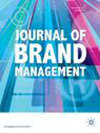
Journal Of Brand Management
中科院 3區(qū) JCR Q2
大類:管理學(xué)
-
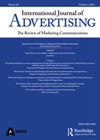
International Journal Of Advertising
中科院 3區(qū) JCR Q1
大類:管理學(xué)
-
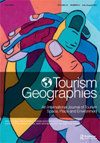
Tourism Geographies
中科院 3區(qū) JCR Q1
大類:管理學(xué)
-
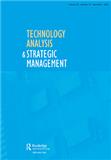
Technology Analysis & Strategic Management
中科院 4區(qū) JCR Q2
大類:管理學(xué)
-
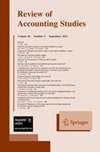
Review Of Accounting Studies
中科院 3區(qū) JCR Q1
大類:管理學(xué)
-

International Journal Of Bank Marketing
中科院 3區(qū) JCR Q1
大類:管理學(xué)
熱門期刊推薦
-
Technological Forecasting And Social Change
中科院 1區(qū) JCR Q1
-
Journal Of Consumer Behaviour
中科院 3區(qū) JCR Q2
-
Current Issues In Tourism
中科院 3區(qū) JCR Q1
-
Business Process Management Journal
中科院 3區(qū) JCR Q1
-
International Journal Of Operations & Production Management
中科院 2區(qū) JCR Q1
-
Technology Analysis & Strategic Management
中科院 4區(qū) JCR Q2
-
Journal Of International Business Studies
中科院 1區(qū) JCR Q1
-
Business Strategy And The Environment
中科院 1區(qū) JCR Q1
